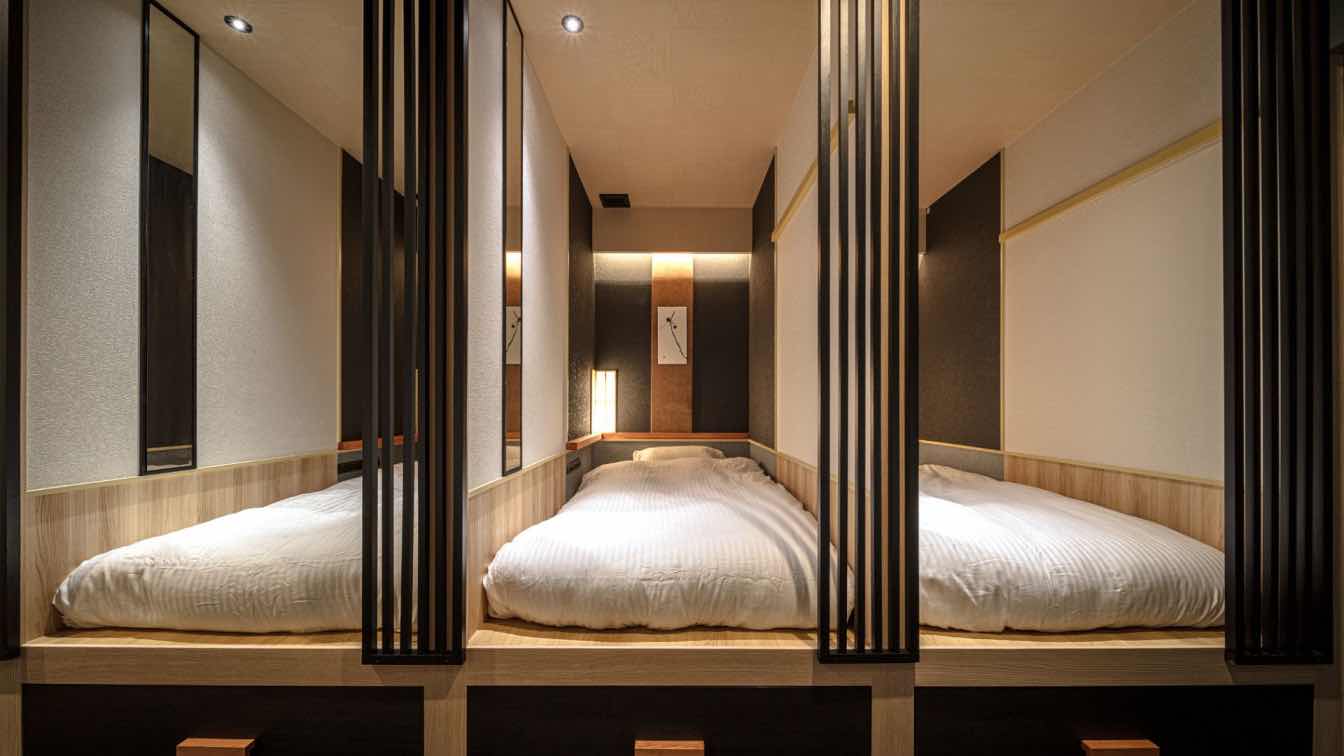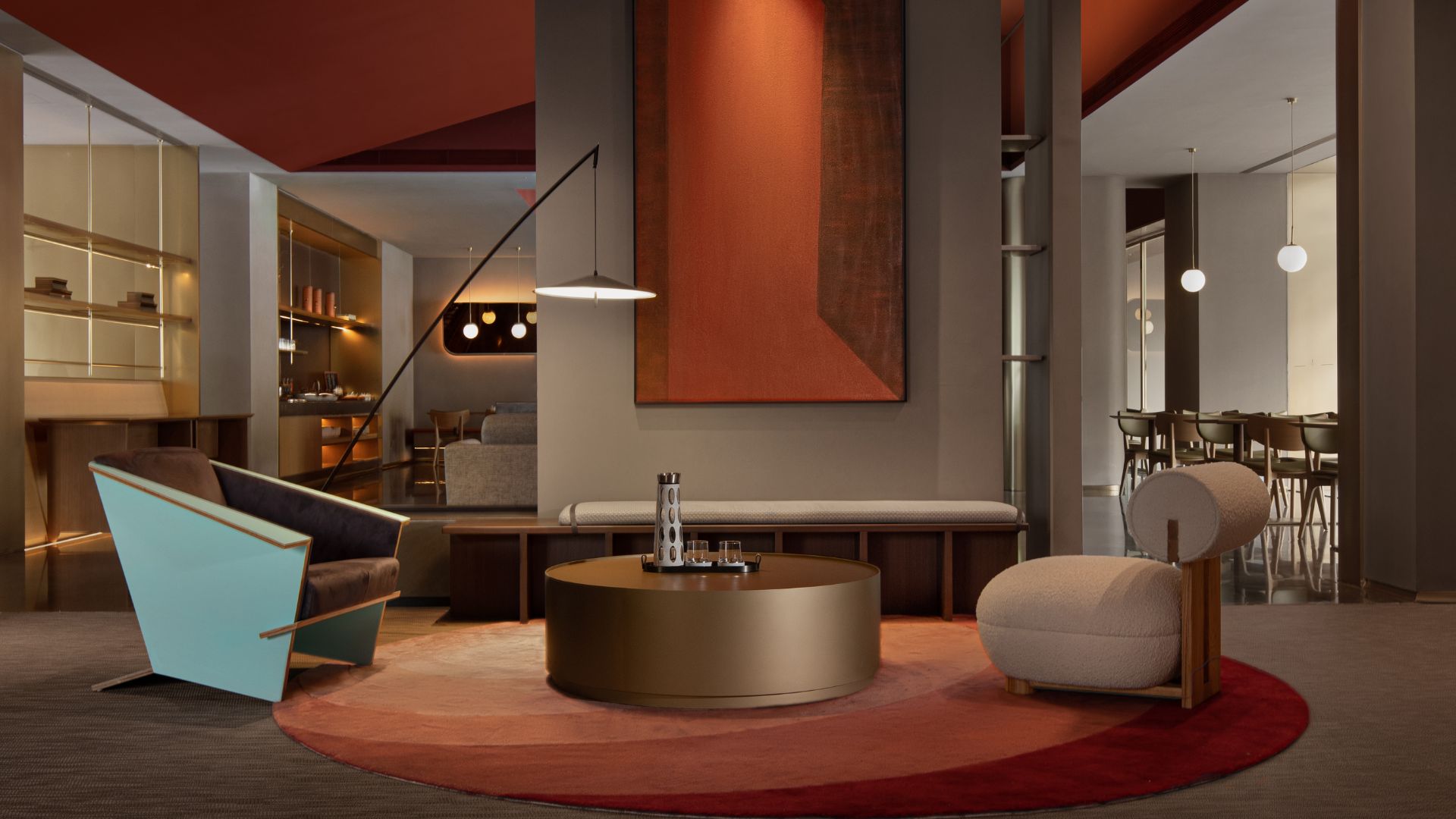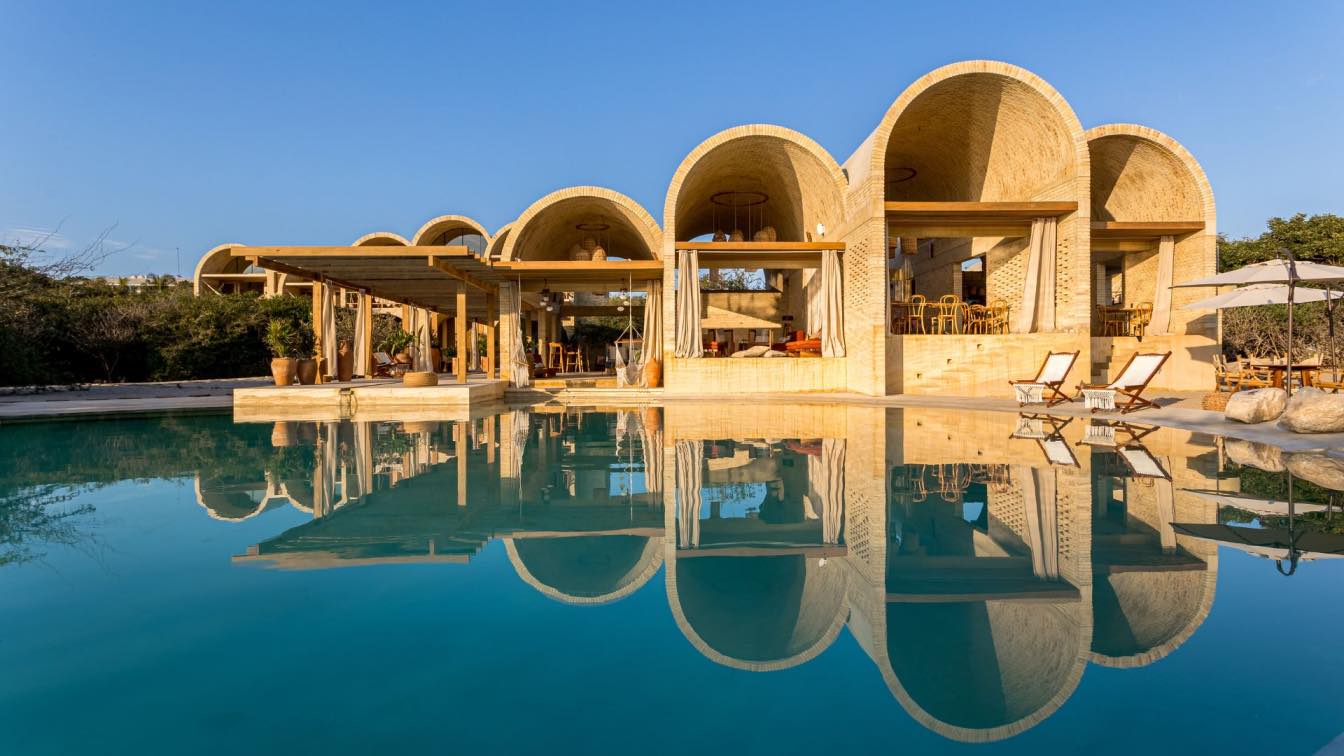MUKU Design Studio: In response to the growing inbound demand in recent years, plans were made for a capsule hotel primarily targeting foreign visitors to Japan. The hotel is located on the first floor of a building in front of Akasaka-Mitsuke Station in Tokyo.
The concept "stay-in tea room" is a space of one tatami mat in size that distills the essence of Japanese beauty, while also being affordable and accessible for younger guests to enjoy with peace of mind.
The common area consisting of a small lounge inspired by a tea garden, guestroom corridor and vanity areas, pursues a sense of tranquility that allows guests to step away from the urban bustle the moment they exit the elevator.
Within a space enveloped entirely in black, the faint glow of lanterns and candles softly emerges, while indirect lighting placed on the floor and ceiling guides visiting guests to their respective rooms. This experience mirrors the ritualistic tea ceremony performed to purify mind and body before entering the pristine space of a tea room from the mundane world, enhanced by the dramatic effect of light.
In the guest rooms, the design focused on transforming the inherent "narrowness"—an unavoidable characteristic of capsule hotels—into a comfortable and calming lodging experience for guests. While the essence of a tea room's narrowness lies in fostering an intimate relationship between host and guest, here it was conceived to achieve an effect similar to "zazen" meditation, providing quiet time to restore mental tranquility and temporarily cut off external stimulation.






















